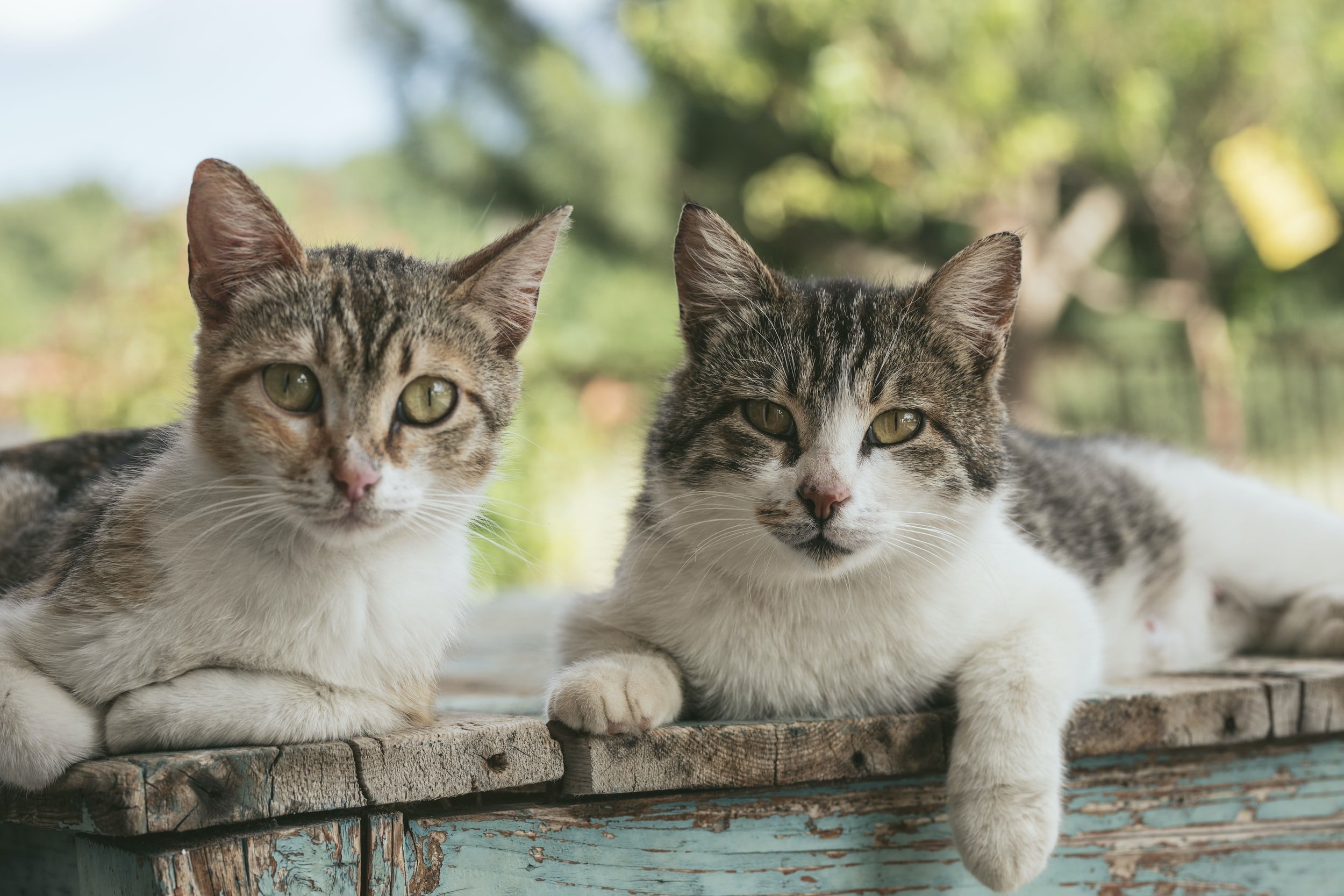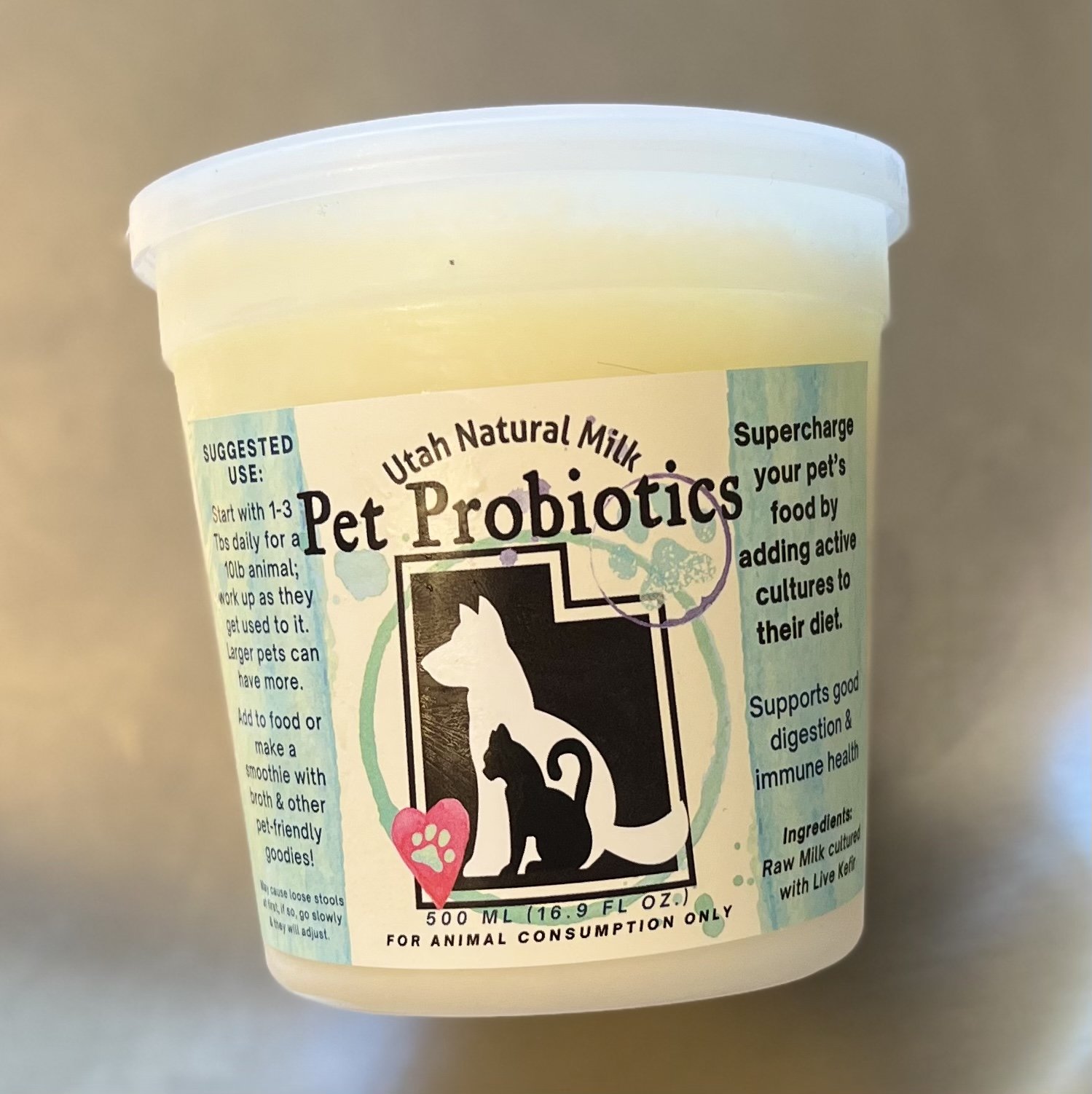Kefir for Cats and Dogs: Wag your Tail for Gut Health!
Kefir is without a doubt a superfood, a functional powerhouse of healthy goodness. Anyone who has known me long at all knows what a big fan I am of this tart, white gold. I often get asked what it is. Well, think of it as yogurt’s cousin, if yogurt had a bigger, stronger, better looking cousin who ran marathons and spouted poetry.
Kefir is a star player in your gut health lineup. It is teeming with beneficial bacteria and yeasts that help us thrive. But what about our best friends—our loyal dogs and cats? They need an optimized microbiome and balanced gut health to thrive as well! Just like for us, kefir has powerful benefits to offer. Let’s take a quick look:
Benefits of Kefir for Cats and Dogs
Inoculates their guts with healthy bacteria and beneficial yeasts
Crowds out harmful microbial species.
Supports a healthy, robust immune system.
Antibacterial and anti fungal.
Anti-inflammatory, can help prevent or manage joint pain, especially in older animals.
Regulates stool consistency (after an initial adjustment period) so can help with diarrhea or constipation.
May help regulate blood sugar by decreasing circulating glucose
Has been shown to help lessen severity of environmental allergies.
Easy to digest, making it ideal for young, elderly, or compromised animals*
*some owners are worried about the lactose content in milk, it can be problematic for Dogs especially to digest. With fermented dairy like Kefir, the lactose has been consumed by the microbes (they also predigest proteins and other components of the milk!) and the final product is lactose fee and easy on their tummies.
How to incorporate Kefir into their Diet
Like with people, you need to start slowly and build up so as not to overwhelm their existing microbiome. A dramatic shift in gut flora can cause diarrhea or loose stools and smelly gas (no fun for anyone.) Kefir can also promote a cleansing reaction, which can make dog or person feel a little run down or even fluey for a couple days. If you take it slow, allowing your gut time to adjust, you can usually avoid this situation all together!
Kefir is good as a treat by itself or as a topper, poured over their food.
For Doggos:
A good rule of them is to start at 1 Tbs a day per every 10 lbs of dog and work up to 3 tbs (or more, as tolerated).
So a 15 lb dog could start with 1 ½ Tbs and increase a little each day until they were taking 4 ½ Tbs . A 30 lb dog could take 3 tbs and work up to 9. Once they are adjusted, it really doesn’t need to be that technical. Just pour a little over their food and they will lap it up. My own dog, Zia, enjoys a bowl of kefir every day and comes running when she sees me fixing it!
For Cats:
As with seemingly everything, cats are more persnickety when it comes to introducing new foods. With kefir, we are talking teaspoons rather than tablespoons. It is better to start with a trace of kefir:
1/4 tsp and increase every few days by doubling the amount.
Slow is better. If they are doing well at 1 teaspoon, stay there for a week before increasing again. Let their little guts adjust. They may work up to a Tablespoon a day. My cat shows no interest in kefir unless I put it with tuna or a soft food she really loves.
Where to get Kefir
Make your own!
Get kefir “grains” from a friend, purchase online at CulturesforHealth.com or swing by Utah Natural Meat for live, active grains (technically little SCOBYs) ready to brew you a fresh batch of kefir day after day. Kefir is suprisingly easy to make. With care, your start can live for years and years! It is important to note we are talking about MILK kefir grains, and not WATER kefir. Water kefir is another beverage entirely and generally considered to be to high in sugar to be healthy for your pets.
Purchase it!
I am proud to offer Pet Probiotics in the freezer section of Utah Natural Meat. It is made with the highest quality cow milk available and fermented for a longer time to make it extra powerful. (Humans, including myself, are often turned off by the pungency of a longer ferment, but I find pets generally love the taste and it makes it even easier to digest!)
Care & Handling:
Kefir is sold frozen. Thaw in the refirgerator and refreeze anytyhing you won’t use within 14 days. I recommend a single refreezing cycle if necessary to maintain the potency of the kefir. Because it is fermeneted longer, product may separate into curds and whey. This is NORMAL. Simply shake to remix or feed as is, your fur baby won’t mind!
A note of caution: purchasing commercial kefir at any grocery store is not the best way to go. The strains are carefully controlled so there are often fewer available, but more importantly, it is made for human consumption and often has sugars and flavors added to enhance taste. Your best bet is a homemade kefir or a quality kefir crafted with pets in mind.
Take Good Care of Your Pets
I recommend kefir for almost everyone I work with and certainly my whole family. I wouldn’t overlook the furry members of our tribe either! It really is an easy way to support digestion, immune health, and overall vitality.
Cheers!
Our Best Friends deserve the Best for their Health!
Pet Probiotics: Available at Utah Natural Meat and Milk








